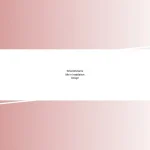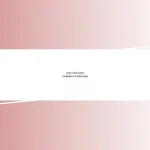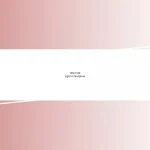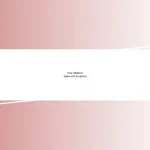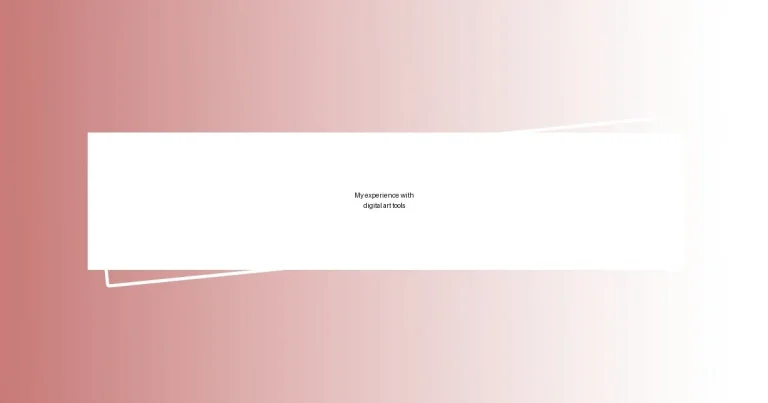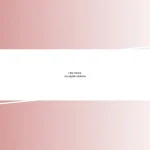Key takeaways:
- Digital art tools offer a diverse range of features that can enhance an artist’s creative expression and adaptability.
- Using drawing tablets, such as Wacom Intuos and XP-Pen, emphasizes the importance of finding the right equipment for personal artistic needs.
- Techniques like layering, blending modes, and custom brushes can significantly enhance digital artwork’s depth and uniqueness.
- Viewing challenges as opportunities for growth can lead to unexpected breakthroughs in the artistic journey.
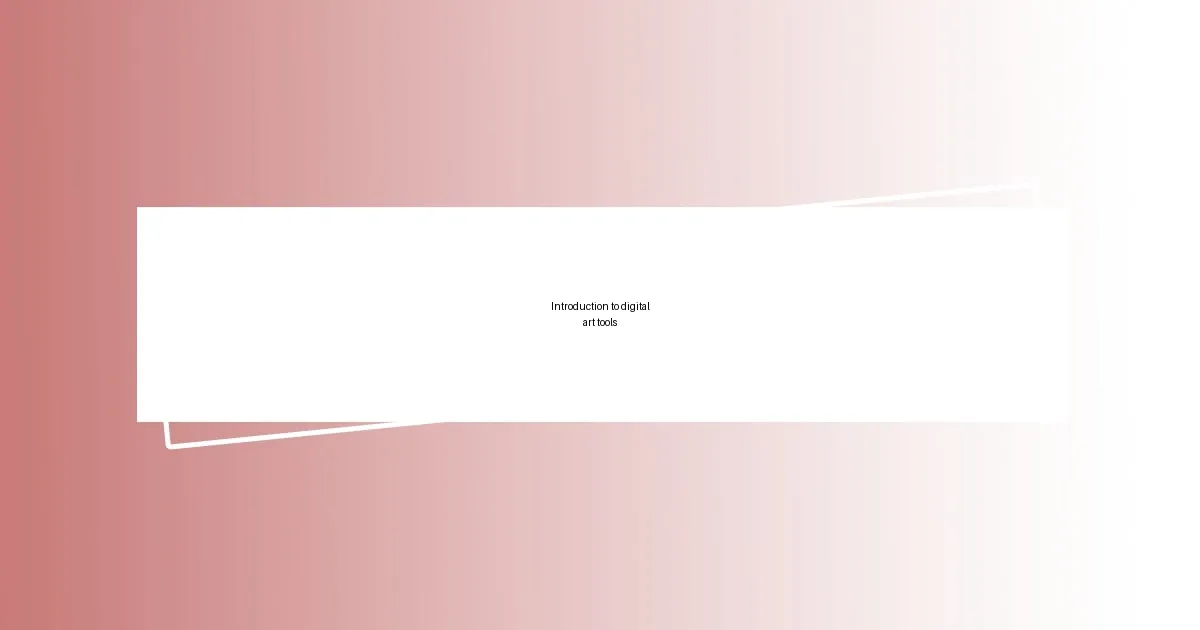
Introduction to digital art tools
Digital art tools have revolutionized the way artists express themselves. I still remember my first encounter with them; it was both exciting and intimidating. I’d been so used to traditional mediums, but the vast options of brushes and textures available at the click of a button were simply mesmerizing.
Many people wonder which digital art tool is right for them. I often think back to my early days of experimenting with different software, like Procreate and Photoshop; they each offered unique features that shaped my style. It’s a journey of discovery, one that can unleash your creative potential in ways you might never have imagined.
Exploring digital art tools is not just about the technology; it’s also about finding your voice. Have you ever felt lost in the digital landscape? I know I have, but the process of trial and error allowed me to appreciate the beauty of blending traditional skills with modern technology. It’s a dance between familiarity and innovation, where each brushstroke fosters growth and new possibilities.
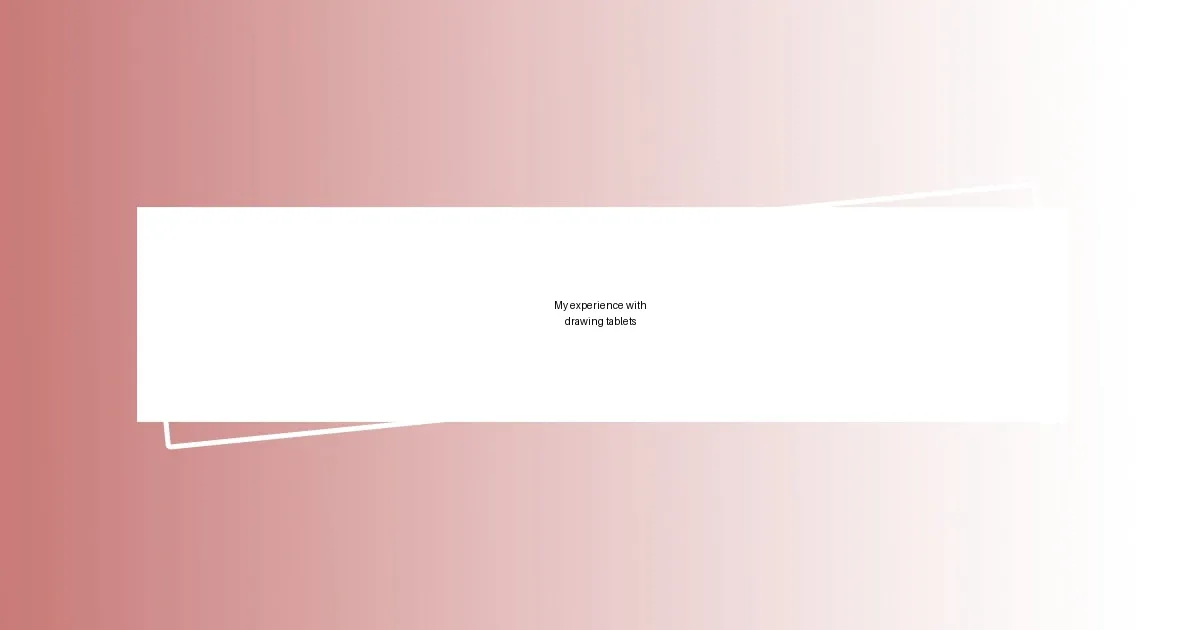
My experience with drawing tablets
When I started using drawing tablets, it was like jumping into a whole new universe. My first tablet, a Wacom Intuos, felt strange at first; I remember repeatedly looking at the screen while drawing on the tablet’s surface, trying to find that connection. However, with some persistence, I began to appreciate the precision it offered. The pressure sensitivity was a game changer for my artwork, allowing me to create more nuanced lines and strokes that simply weren’t achievable with traditional pens or pencils.
Over time, I found that larger tablets significantly enhanced my experience. When I upgraded to an XP-Pen with a bigger screen, it felt as if I had a canvas right in front of me. I was able to use gestures like pinch-to-zoom and rotate, which gave me a real sense of control. I could lose myself in intricate details without straining my neck or eyes—an aspect I didn’t realize would make such a difference until I experienced it firsthand.
Now, I recognize the importance of finding the right tablet for your needs. Some may prefer portable options for sketching on the go, while others may find larger models better for detailed work at their desks. Ultimately, the choice is deeply personal and can affect your creative process in ways you might not expect. What about you? Have you ever felt a tangible shift in your art style after switching up your tools? It’s fascinating to witness how the right equipment can foster an environment where creativity truly thrives.
| Tablet Model | Features |
|---|---|
| Wacom Intuos | Pressure sensitivity, compact size, ideal for beginners |
| XP-Pen | Larger screen, gesture control, perfect for detailed work |
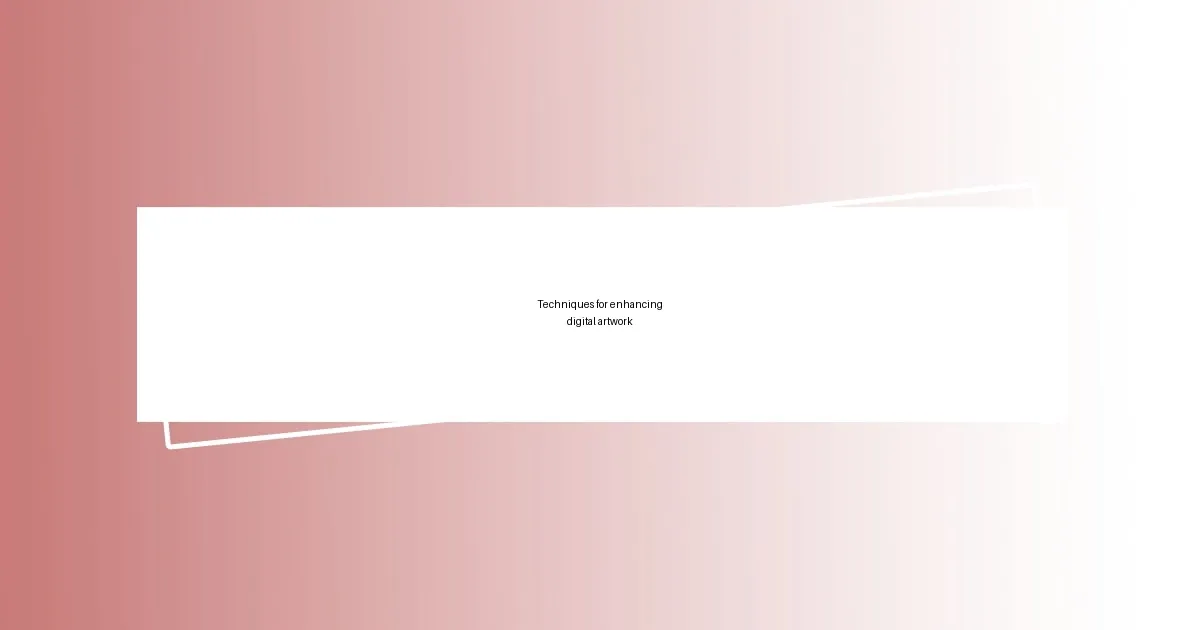
Techniques for enhancing digital artwork
When it comes to enhancing digital artwork, experimenting with different brush techniques can make all the difference. I vividly recall the moment I discovered custom brushes in Photoshop; it felt like unlocking a new language of creativity. By combining textures and applying varied pressure, I was able to add depth and character to my work that I never thought possible.
Here are some techniques I’ve found particularly effective:
– Layering: Applying multiple layers allows for flexibility and easier adjustments without losing original work.
– Blending Modes: Experimenting with blending modes can create unique effects that enhance colors and textures beautifully.
– Custom Brushes: Utilizing or creating custom brushes can add a personal touch and enhance the uniqueness of your artwork.
I encourage you to explore these techniques—it’s all about finding what resonates with your style. The joy of seeing your artwork come alive through these methods is truly rewarding.
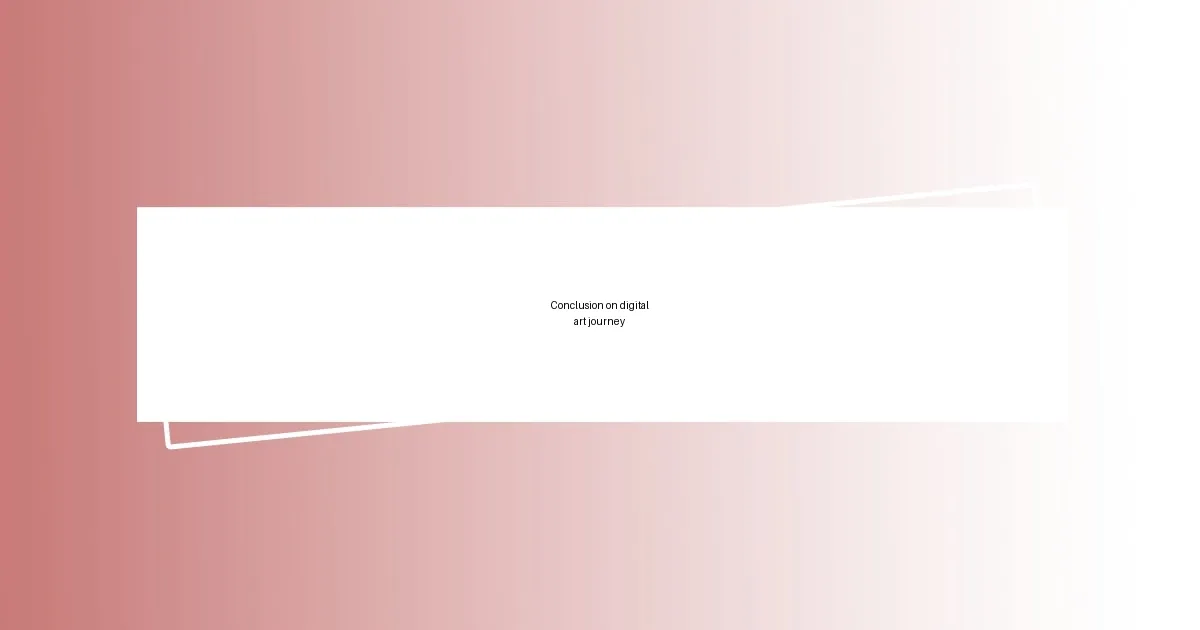
Conclusion on digital art journey
When I reflect on my digital art journey, it’s evident that every tool I’ve tried has shaped my artistic voice in unique ways. I still remember the feeling of awe when I first discovered digital palettes; it felt like being given a limitless color spectrum. It truly hit me how technology can amplify not just skills, but also emotions in art. Isn’t it amazing how each brushstroke can evoke a different feeling based on the tool you use?
One of the most significant lessons I’ve learned is that adaptability is key. I’ve faced moments of frustration with software updates or hardware glitches, but these challenges pushed me to explore new features and refine my techniques. Each setback became a stepping stone, transforming obstacles into learning moments. Have you ever found that your struggles in art brought unexpected growth?
Looking back, I realize that my journey with digital art tools has been a blend of exploration, experimentation, and personal expression. It’s not just about the final piece but the intricate process of discovery along the way. So, as you continue on your own artistic path, remember that every failed attempt can lead to unexpected breakthroughs. Just think—what wonderful surprises lie ahead on your digital canvas?


